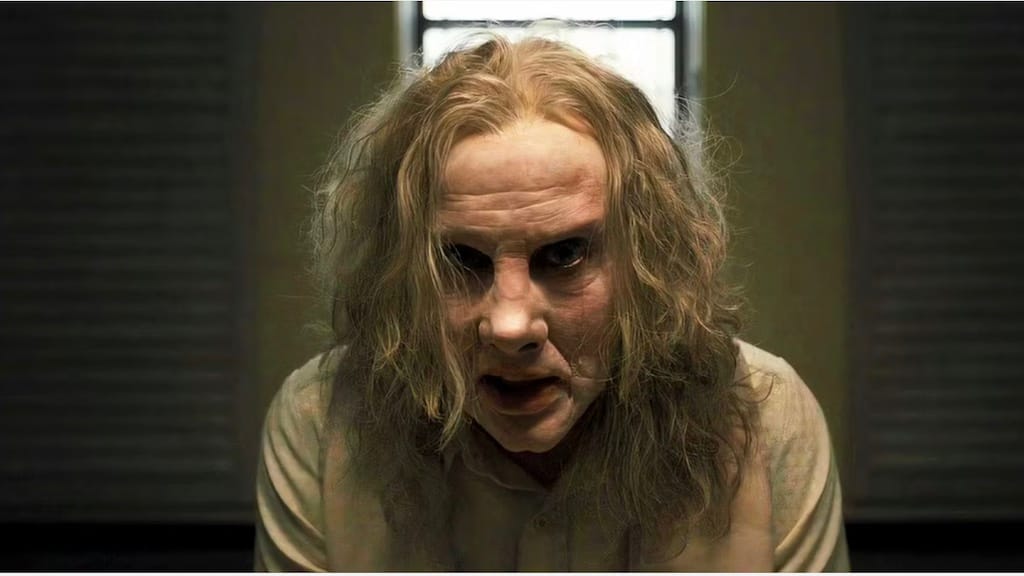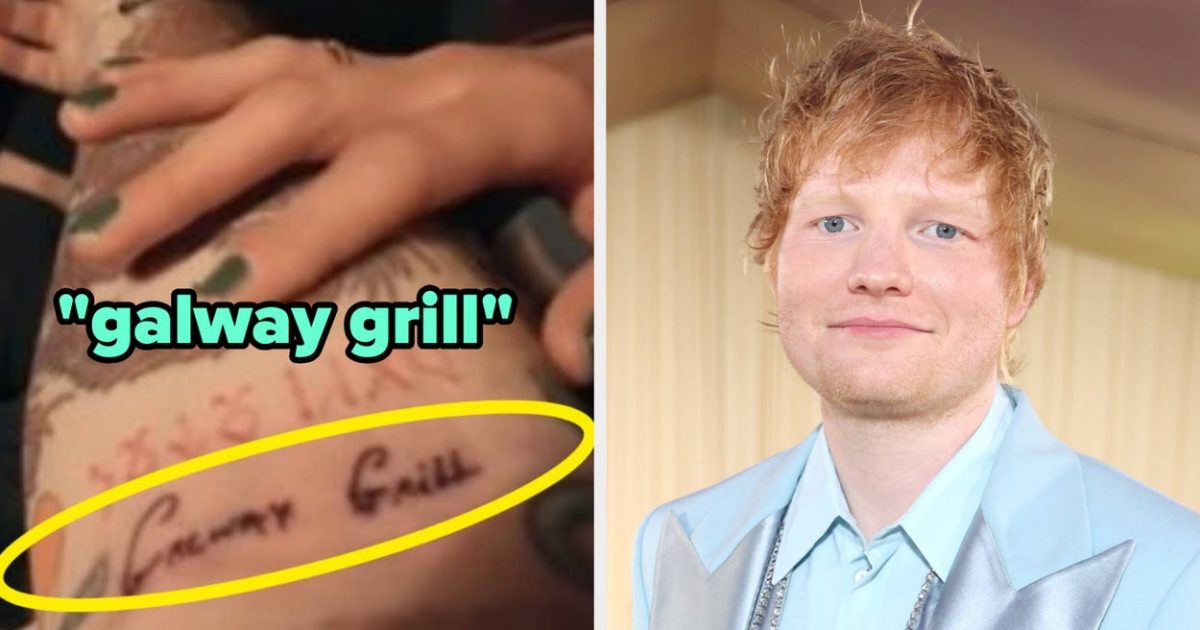
Elizabeth Olsen & Lily Rabe Are Exquisite In HBO’s True Crime Drama
Apr 20, 2023
HBOMax’s “Love & Death,” the new true crime drama from prolific writer David E. Kelley (“Big Little Lies”), follows on the heels of last year’s Hulu miniseries “Candy,” which also told the story of Texas housewife Candy Montgomery (Elizabeth Olsen, “WandaVision”), who in the summer of 1980 was accused of brutally murdering her friend Betty Gore (Lily Rabe, “American Horror Story”) with an axe.
Where “Candy” was a wonky black comedy about female rage and madness, “Love & Death” is a more straightforward drama that seeks to go deeper and understand the ordinary, small things in life that build up rage within someone and can burst through a moment of madness.
READ MORE: Elizabeth Olsen To Star In ‘Love And Death’ Series From ‘Big Little Lies’ Creator & HBO Max
Kelley and director Lesli Linka Glatter (“Homeland”) focus more on building the interiority of those involved in the events. The densely layered seven episodes meticulously recreate details from Jim Atkinson and Joe Bob Briggs’s book “Evidence of Love: A True Story of Passion and Death in the Suburbs,” including Candy’s affair with Betty’s husband Allan (Jesse Plemons, “The Power of the Dog”), Betty’s murder, and Candy’s subsequent trial.
The title sequence of the series sets up the small town suburban setting of Wylie, Texas, replete with beautiful mid-century homes, a woody station wagon driving down a main street with red brick buildings, and a white church with a large steeple. Nina Simone’s “Don’t Let Me Be Misunderstood” serves as the theme song. Although the use of Simone’s songs have become a crutch as of late, here the lyrics help underscore the show’s main theme. She sings, “Baby, do you understand me now/Sometimes I feel a little mad/Well, don’t you know that no-one alive/Can always be an angel/When things go wrong I seem to be bad/I’m just a soul whose intentions are good.”
Candy, Betty, and really all the women in the town struggle with being the perfect wife, the perfect mother, the perfect church-goer, and the perfect neighbor. Their new church pastor Ron (Keir Gilchrist, “Atypical”), gives fire and brimstone sermons about how there are only actions that are good or evil. This type of thinking about human behavior is also seen in the wake of Betty’s murder. The townspeople and the media immediately paint Candy as a bloodthirsty monster, a home-wrecker. There is no room for the actual nuance of the situation or for any contemplation of the complexity of human relationships.
By hyper-focusing on the banality of the facts of the case, Kelley’s script reveals the hypocrisy of this way of thinking. Both women led complicated lives. Their relationships with their husbands, their children, their friends, their church, and their work were all more complex than the portrait the sensational media wanted to paint. By recreating the months that led up to Betty’s death in painstaking detail, Kelley allows both Candy and Betty the grace of feeling like real women rather than ciphers they’ve been reduced to.
Those hoping to find sensationalism or a gruesome recreation of the murder will be sorely disappointed. Instead, what Kelley and Glatter have crafted is a drama about the importance of personal growth, of communication with your life partner, and, frankly, a bleak portrait of how the lack of good mental healthcare for mothers and pregnant women strained a lot of people to their breaking point. It’s also a critique of sensationalism, whether in the media, in the church, or in the gossips of a community.
Olsen is sublime as Candy, a woman whose irrepressible energy was stifled by the limitations imposed on her as a housewife in the 1970s. These limitations are compounded by her passively neglectful husband Pat (Patrick Fugit, “Almost Famous”), a mathematician who is incapable of showing his emotions
At first she attempts to push past these limitations by gossiping with her friend Sherry (Krysten Ritter, “Jessica Jones”), but after an inadvertently sexually charged moment between Candy and Allan occurs during a church volleyball game, she focuses her malaise on fantasies that eventually evolves into a short-lived affair between the two. Plemons brings his signature softness to Allan while also finding deep layers of conflict as he becomes aware of his own penchant to neglect both the women in his life.
In the first two episodes, Allan fills an emotional void in Candy while Candy teaches Allan the power of intimacy and good sex. These episodes include some of the most dynamic sequences in the series, allowing both actors a showcase for their talent at broadcasting immense emotional changes solely through the look in their eyes at any given moment. Yet, the affair is only a small note in the events that build up to Betty’s murder. Although Candy’s point of view often remains the main focus of the series, it is actually Betty’s emotional arc in the background that proves to be the key.
Because of this, Rabe is tasked with the most difficult role. Betty was never able to share her own side of what happened between the three of them, and what we know of her comes from the testimony and memories of those who knew her. Rabe’s performance as Betty exemplifies this mystery, bringing forth many swells of prickly, often overwhelming feelings. One minute she’s dictating exactly how Allan thrusts to best conceive a child; the next she’s snapping at pastor Ron over his style of sermons, only to be later overwhelmed by postpartum depression. Throughout these many moods, Rabe never loses sight of the emotional truth: that Betty was not just a victim but a complex woman capable of good and evil–and everything in between, just like anyone else.
The same goes for Candy, whose emotions also run the gamut as she navigates her changing relationships and the feelings they evoke in her. Though mostly calm, cool, and collected, the series never sugarcoats that it was Candy’s rage that led toward the more grisly aspects of Betty’s death, regardless of whether Betty provoked it. But again, it refuses to paint her solely as a vicious killer. The episodes showing the investigation and her trial wisely focus less on her culpability and more on the unique tactics of her lawyer Don Crowder (Tom Pelphrey, “Ozark”). These included his use of regression therapy, which unearth a childhood memory that explains exactly why Candy struck Betty 41 times, despite her plea of self-defense.
This sequence pairs nicely with some earlier episodes in which Betty and Allan, and later Candy and Pat attend a relationship retreat called Marriage Encounter. This was the era that launched ideas like self-help, self-actualization, group therapy, etc. Candy’s story shows the many ways in which these tools were used both by individuals and society at large. Whether the science and philosophies behind them actually hold up is beside the point.
And that’s really the crux of the show: although it’s skillfully shot and exquisitely acted, it presents the facts as they were laid out by those involved with very little editorialization beyond the basic dramatization required of the medium. This may deter viewers who are more used to the salacious tone in which these kinds of stories are often told. It comes down to whether you like your true crime with or without the pulp. [B+]
“Love and Death” airs April 27 on HBO Max.
Publisher: Source link
"We Despised Each Other So Much That It Read As Love": 13 Costar Duos Who Did NOT Get Along
Diane Kruger said, "It kind of sucked. He's dead, so I can say that. But he wasn't the most pleasant person."View Entire Post › Disclaimer: This story is auto-aggregated by a computer program and has not been created or edited…
Dec 25, 2024
19 Best Experience Gifts for Everyone on Your List
Our writers and editors independently determine what we cover and recommend. When you buy through our links, E! may earn a commission. Learn more. As the holidays approach, the last loved one on your list is usually the hardest person to…
Dec 25, 2024
Celebs With Embarrassing Tattoo Mistakes Revealed
If read vertically from top to bottom and horizontally from right to left, which is how Japanese is read, the tattoo translates roughly to say "ring seven fingers." However, if the tattoo is read horizontally from left to right and then…
Dec 24, 2024
Bruce Willis’ Wife Emma Shares Family Photos Amid His Health Battle
Bruce Willis’ wife Emma Heming Willis is cherishing the good times. Almost two years after the Die Hard actor’s wife, his ex-wife Demi Moore, and his kids Rumer Willis, 36, Scout Willis, 33, Tallulah Willis, 30, Mabel Willis, 12, and Evelyn Willis, 10, announced that…
Dec 24, 2024











